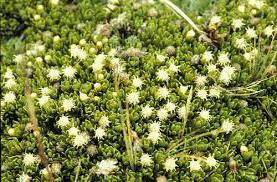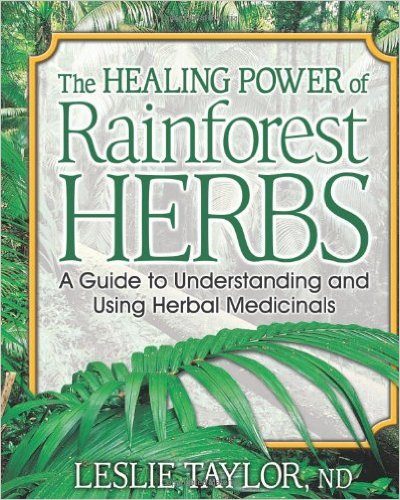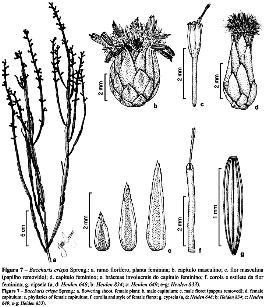 Summarized Description:
Summarized Description:
Carqueja has a variety of names, like many of the botanicals we work with.
However,
Baccharis genistelloides is confusion both with its variety
of both common and scientific names. B. triptera and B. trimera are both
used, and Duke refers to the plant as "Brazilian Absinth," while attaching
the scientific name, B. articulara (Lam.) -- a fourth assignment of species
name to the same genus.

Carqueja is a perennial herb, common to
tropical and subtropical South America. It may be found in Brazilian
pharmacopias for its long-standing use in treating a variety of ailments
(see below).
Uses & Protocols

Taylor reports on the use of an infusion of Carqueja,
discovered by Pio Correa in 1931 in his travels to Brazil. The infusion was used for
both sterility in women and impotency in men. There are many other medicinal uses for
Carqueja, consistent with the "Indications" section below, however, the most common
uses involve treatment of liver and kidney ailments, diabetes, gout, and poor blood
circulation. Dosage: two capsules, twice a day.
Warnings & Contraindications

Do not use Carqueja if you are pregnant or have low
blood pressure. Contraindicated for those with hypoglycemia. If you have diabetes,
check with your physician before use. Moreover, diabetics should monitor their blood
sugar levels accordingly.
Shelf-Life

Five years or more.
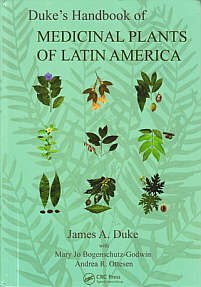
Medicinal Activities
 Further information for practitioners:
Further information for practitioners:
World-famous botanist Dr. James Duke attributes the following activities
to this plant
(p. 85-86; see hardcopy cover at right,
purchasable on Amazon),
drawn from the extant literature. (See his graduation for "level of
efficacy" on our
amazon traditionals page;
followed by Duke's bibliographic abbreviations (in capital letters),
which we
identify
on a separate page.)

Duke provides a "
food farmacy potential" score for this
plant of "FNFF=X?."
- Abortifacient (f1; MPG)
- Antioxindant (1; X12797477)
- Antirheumatic (f; MPG)
- Antiseptic (f1; MPG; X10932751)
- Antipasmodic (f; MPG)
- Antiviral (1; X10932751)
- Bitter (f; MPB)
- Digestive (f; MPB; MPG)
- Diuretic (f; MPB)
- Febrifuge (f; MPB)
- Hepatotonic (f; HH2; MPG)
- Stomachic (f; HH2; MPG)
- Tonic (f; MPB)
- Uterotonic (f; HH2)
- Vulnerary (f; HH2)
Indications
 Further information for practitioners:
Further information for practitioners:
Duke provides the following indications for this plant:
- Anemia (f; MPB)
- Arthrosis (f; MPG)
- Cholera (f; MPB)
- Debility (f; MPB)
- Diarrhea (f; MPB)
- Dyspepsia (f; MPB)
- Fever (f; MPB)
- Impotence (f; MPG)
- Infection (f1; MPG; X10932751)
- Infertility (f; MPG)
- Rheumatism (f; MPG)
- Spasms (f; MPG)
- Viruses (1; X10932751)
- Wounds (f; HH2)
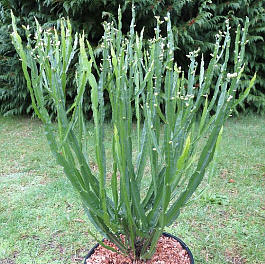

 Recent Studies on Carqueja
Recent Studies on Carqueja